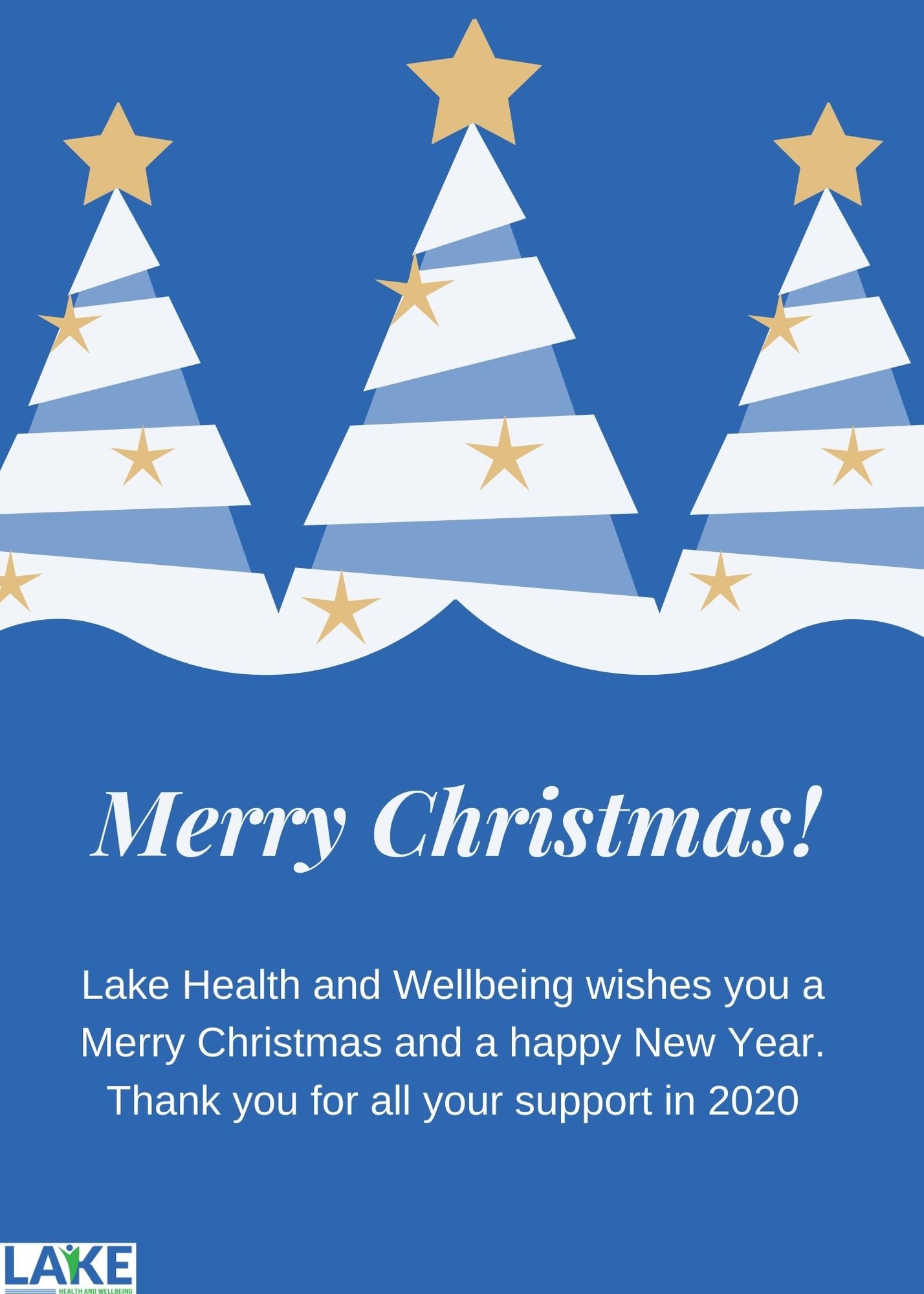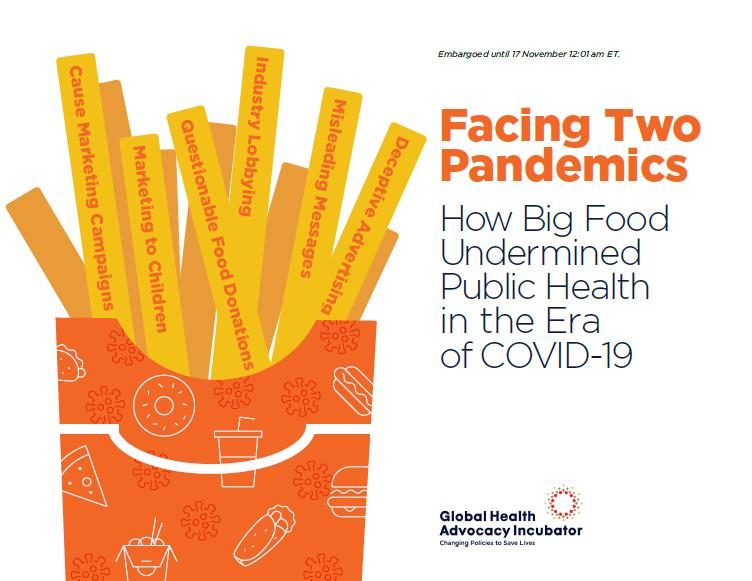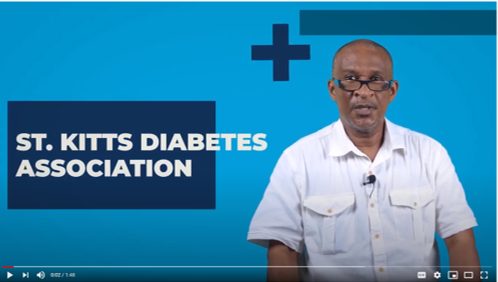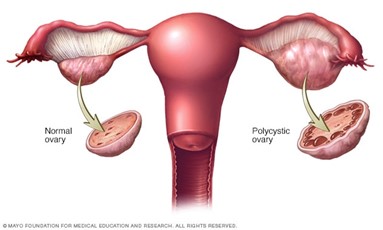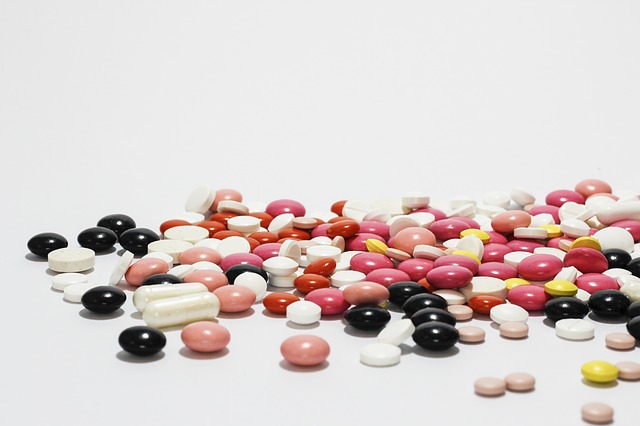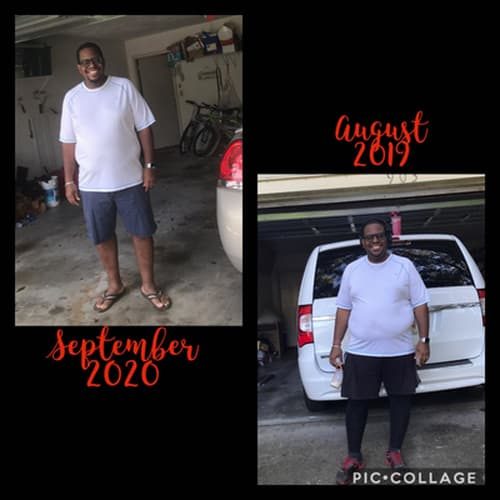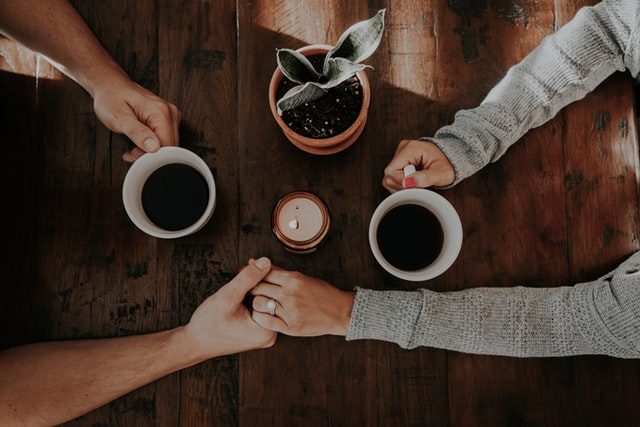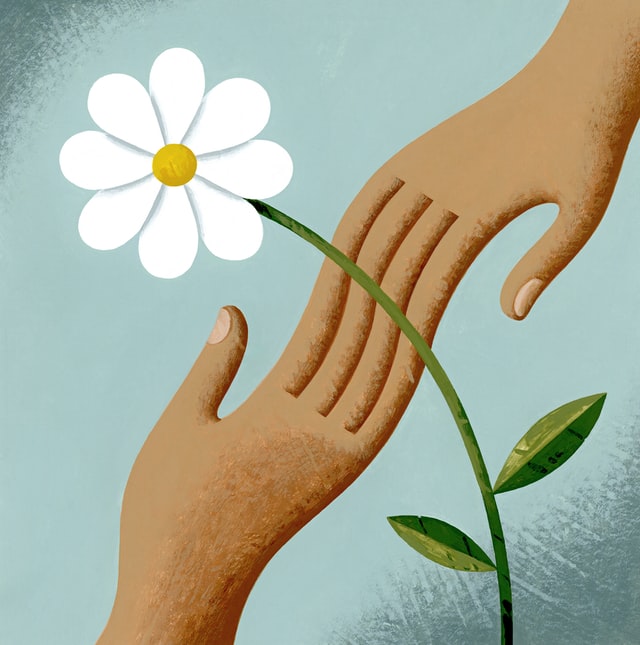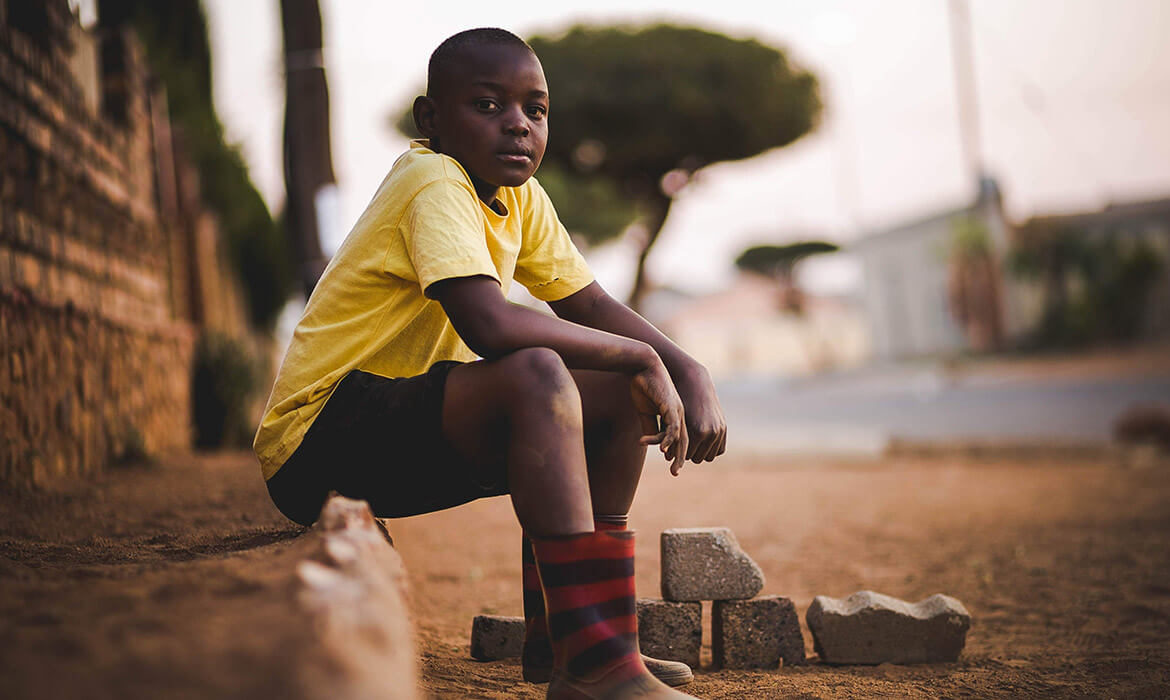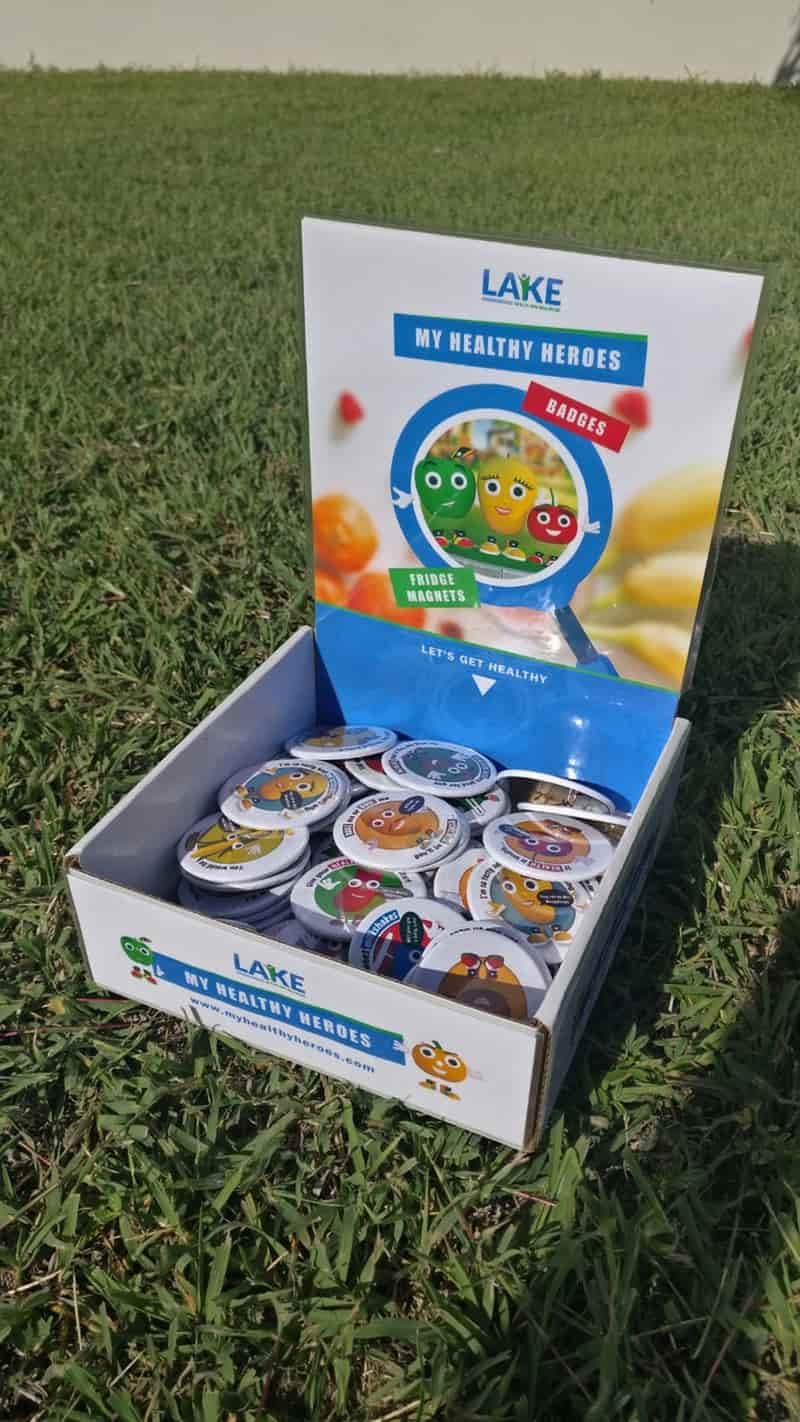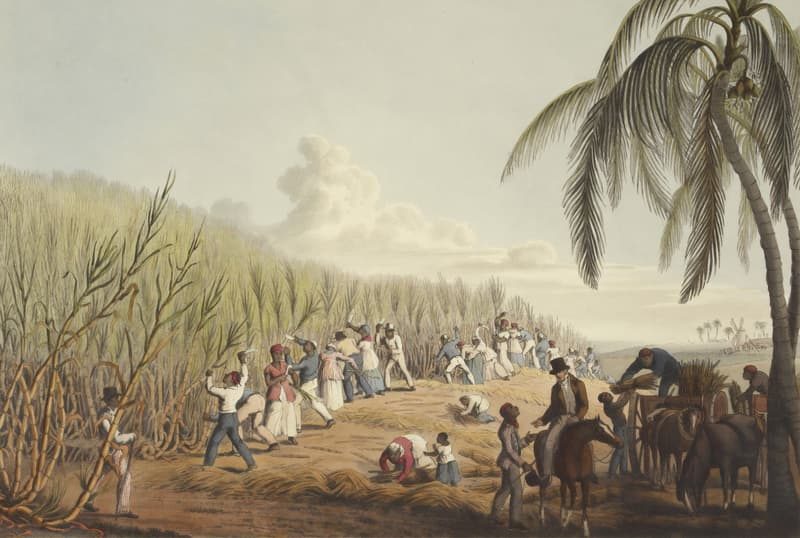 Today’s blog post comes from Aaron D’Souza, a second-year medical student at the University of Medicine and Health Sciences in St. Kitts. While he has been active at school in multiple areas including playing soccer for the school and teaching high schoolers neuroscience with the BrainBee project, he is helping us as a new volunteer.
Today’s blog post comes from Aaron D’Souza, a second-year medical student at the University of Medicine and Health Sciences in St. Kitts. While he has been active at school in multiple areas including playing soccer for the school and teaching high schoolers neuroscience with the BrainBee project, he is helping us as a new volunteer.
Aaron discusses the emotions and challenges faced by caregivers of patients with multiple myeloma. By recounting his mother’s experience as a caregiver, he identifies barriers that a caregiver may struggle with and provides scientifically supported practical advice to help those who have recently become caregivers of a loved one with multiple myeloma.
Cancer is a group of diseases that everyone is familiar with in some form. Formally, it is the uncontrolled replication of cells leading to various problems. One particular cancer that will be the focus of this post is multiple myeloma (MM). Specifically, we will focus on the caregiver burden of those caring for someone with MM, as there is a lack of emphasis on their well-being and personal experience, but first, a bit of background information.
What is MM? MM is a type of blood cancer that is progressively debilitating, painful and ultimately fatal (most commonly due to infection).
Who is at risk? It occurs 1.6x more often in males than in females. It is 2x as often in the Black population than in the Caucasian population. Additionally, Black people are more likely to get it at a younger age.
When is it usually diagnosed? The median age of diagnosis is 65 years old. In cases diagnosed and treated early, 60% of patients will survive up to 5 years; only a fraction will survive 10 years after diagnosis.
What causes it? While there is a confirmed genetic role, there is also evidence of many other factors contributing to its onset. Such factors include exposure to radioactive substances and certain chemicals, such as benzene. Usually, a large dose of benzene can only be acquired from being exposed to factory emissions for several years or wastewater.
What are some symptoms? MM has systemic complications ranging from severe bone pain/ osteoporosis to kidney failure and infection. Throughout the progression of the disease and administration of treatment, it is standard to see periods of remission, periods of high severity and periods where the side effects feel worse than the disease.
Can it be treated? Sadly, the majority of people with MM will pass away. Recovery is possible if the patient is diagnosed early and started on therapy. Treatment ranges from conventional chemotherapy to stem cell transplantation. You can find more information on how these treatments work on the American Cancer Society’s website.
Unfortunately, MM patients are often misdiagnosed or are diagnosed late because there is a lack of experience diagnosing it among physicians. The latter happened with my grandfather, and within 1 year of diagnosis, he passed away. While many understand the suffering of a cancer patient, not many understand the challenges the caregivers face; a role that my mother fulfilled for my grandfather. A caregiver is someone responsible for the needs of the patient, often without any compensation. Responsibilities of a caregiver include scheduling, transport, finances, housekeeping, legal support and emotional support. It is usually a spouse, adult, child, or other immediate family members that fill this role and the role of a caregiver can be simultaneously rewarding and challenging.
My mother had her own mix of such emotions as a caregiver. At the time of my grandfather’s diagnosis, we had already lived in Canada for 10 years and in the United Arab Emirates before that, while my grandparents were living in India. Although my mom would go to India over the summers to look after my grandparents, she was otherwise dependent on friends and relatives to ensure my grandparents’ health and safety. The inability to be there with them for longer left her with a sense of guilt at the end of each summer, especially the last summer before my grandfather’s death. The uneven sharing of the caregiver role among family had placed an enormous strain on some of these relationships
As a caregiver, it is essential to note that uncertainty is the greatest obstacle for the well-being of both the patient and the caregiver. A caregiver’s well-being often reflects the status of the patient. Studies have identified numerous challenges to caregiver well-being. Most caregivers face at least a few of these challenges:
- Initial shock: After having to endure the path to diagnosis, eagerly awaiting results, the confirmation of a diagnosis for any type of cancer will come as a shock. Additionally, caregivers must adapt by changing their lifestyles and take on new responsibilities to support their loved ones. Part of the difficulty is due to the unpredictable course of the illness. Many patients and caregivers must endure the shock several times as the disease re-surfaces. Lack of knowledge about the disease is an enormous source of stress.
- Commitment: Being a caregiver sometimes involves giving up your previous lifestyle to reserve free time for an emergency and patient care logistics. Logistics include, but are not limited to, finances and housekeeping (which change as the course of the disease changes).
- The emotional sphere: Caregivers often have feelings of anxiety and fear. Patients often feel that they are burdening their caregivers and relatives with their condition. Caregivers have been found to have a similar attitude, not wanting to burden others with the responsibilities or emotional baggage that comes with being a caregiver. Consequently, they suffer by themselves, unable to honestly express their feelings while being afraid to leave the patient to have well-deserved self-care. They often experience spiritual suffering, unable to find finding meaning in the disease.
As a medical student who is always looking for ways to help people, I have found many coping strategies backed by evidence that worked for my mother and other caregivers. The following is a list of strategies, that as a caregiver, may help you provide the best possible care while looking after your own well-being:

- Ensure that you have a list of questions you can ask the doctor when going in for a visit. Make sure you cover the diagnosis, progression and what to expect, types of treatments, treatments in clinical trials, and end-of-life and palliative care. A full list of questions can be found at the National Cancer Institute. If possible, ask the hospital to send the results home before meeting up with the doctor to help you take in the news and develop better questions.
- Establish your support system. Rather than bottling up emotions and avoiding burdening others, try to connect with others, spread the responsibility, and the emotional burden with close relatives or friends.
- Know your support services. Joining a support group is an excellent resource for information on handling caregiver responsibilities, treatment options, possible side effects, warning signs, etc. It is also a safe space where you can vent your thoughts to those able to relate and learn from others about their coping strategies.
- Keep doing the things you enjoy. It’s okay to leave the patient in the care of someone else for a few hours or a day so you can recuperate. It will only help you become a better caregiver and help you remember your loved one with fondness rather than as a burden.
- Use mindfulness meditation and improve emotion-regulation. These will help you prepare for the hard days and the death of your loved one.
Understanding and anticipating the challenges will allow you to avoid some of the anxieties associated with caregiving and better manage your time so you can spend it with your loved one. Keep in mind that every caregiver-patient relationship is different. There is more than one way to be a great caregiver. I hope the strategies above (which are by no means an exhaustive list) will go a long way in promoting caregiver well-being physically, emotionally, and spiritually.
More Support
We’re aiming to support multiple myeloma patients and their family members through the JAA Fund. Small support grants are currently available for patients in St Kitts, Nevis, the British Virgin Islands, Trinidad and Tobago. If you’ve been affected by multiple myeloma, live in one of these countries and require some financial support, you can apply for a grant here
References
Aksoy, M., Erdem, Ş., Dinçol, G., Kutlar, A., Bakioğlu, I., & Hepyüksel, T. (1984). Clinical Observations Showing the Role of Some Factors in the Etiology of Multiple Myeloma. Acta Haematologica, 71(2), 116-120. doi: 10.1159/000206568
Howell, D., Hart, R., Smith, A., Macleod, U., Patmore, R., Cook, G., & Roman, E. (2018). Myeloma: Patient accounts of their pathways to diagnosis. PLOS ONE, 13(4), e0194788. doi: 10.1371/journal.pone.0194788
Monterosso, L., Taylor, K., Platt, V., Lobb, E., Musiello, T., & Bulsara, C. et al. (2017). Living With Multiple Myeloma. Journal Of Patient Experience, 5(1), 6-15. doi: 10.1177/2374373517715011
Multiple Myeloma. (2020). Retrieved 11 September 2020, from https://www.cancer.org/cancer/multiple-myeloma.html
Quiñoa-Salanova, C., Porta-Sales, J., Monforte-Royo, C., & Edo-Gual, M. (2019). The experiences and needs of primary family caregivers of patients with multiple myeloma: A qualitative analysis. Palliative Medicine, 33(5), 500-509. doi: 10.1177/0269216319830017
Waxman, A., Mink, P., Devesa, S., Anderson, W., Weiss, B., & Kristinsson, S. et al. (2010). Racial disparities in incidence and outcome in multiple myeloma: a population-based study. Blood, 116(25), 5501-5506. doi: 10.1182/blood-2010-07-298760







